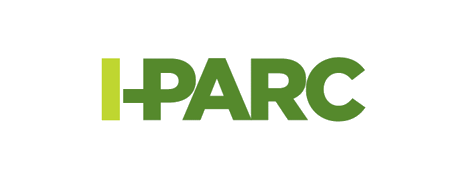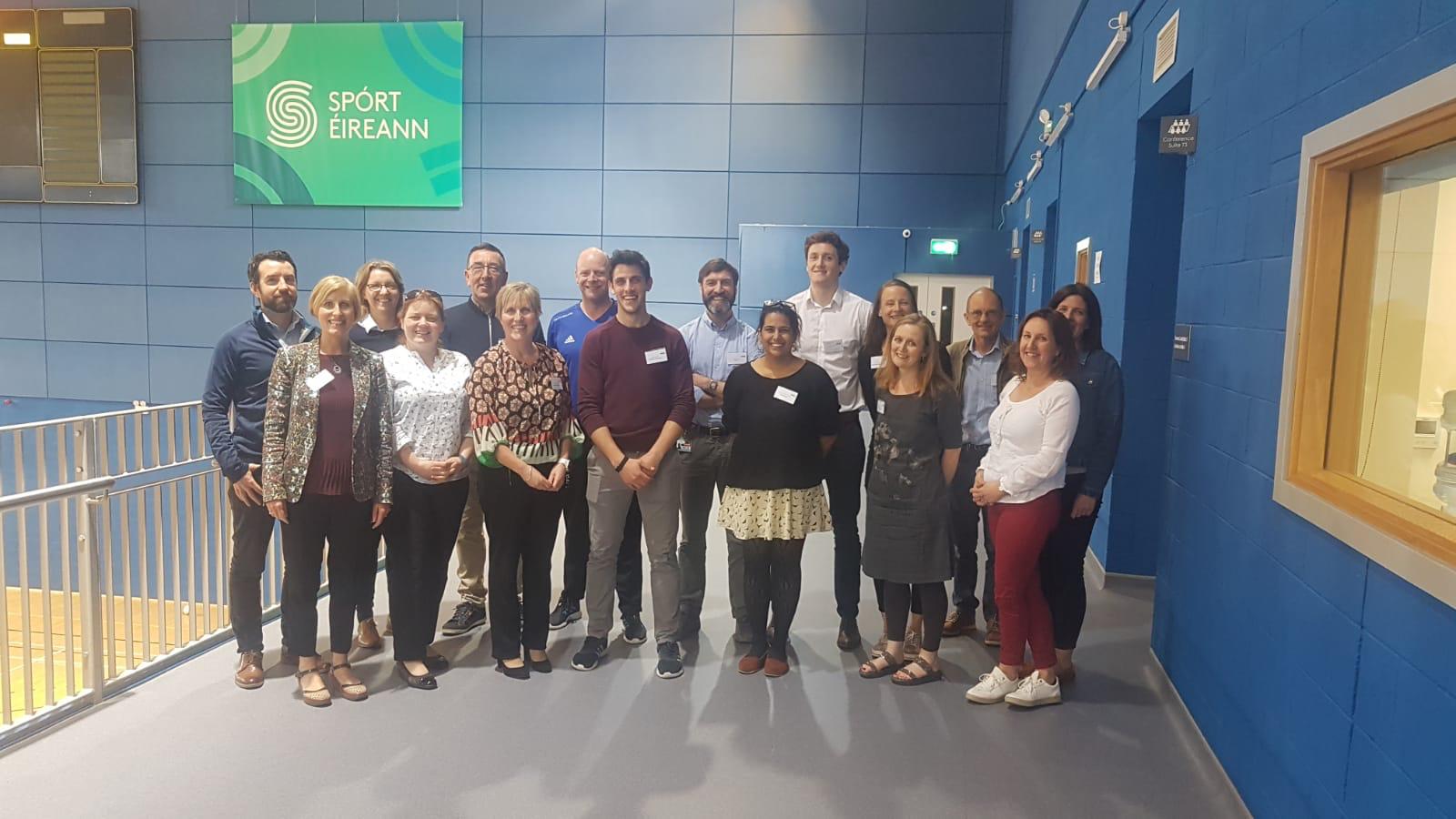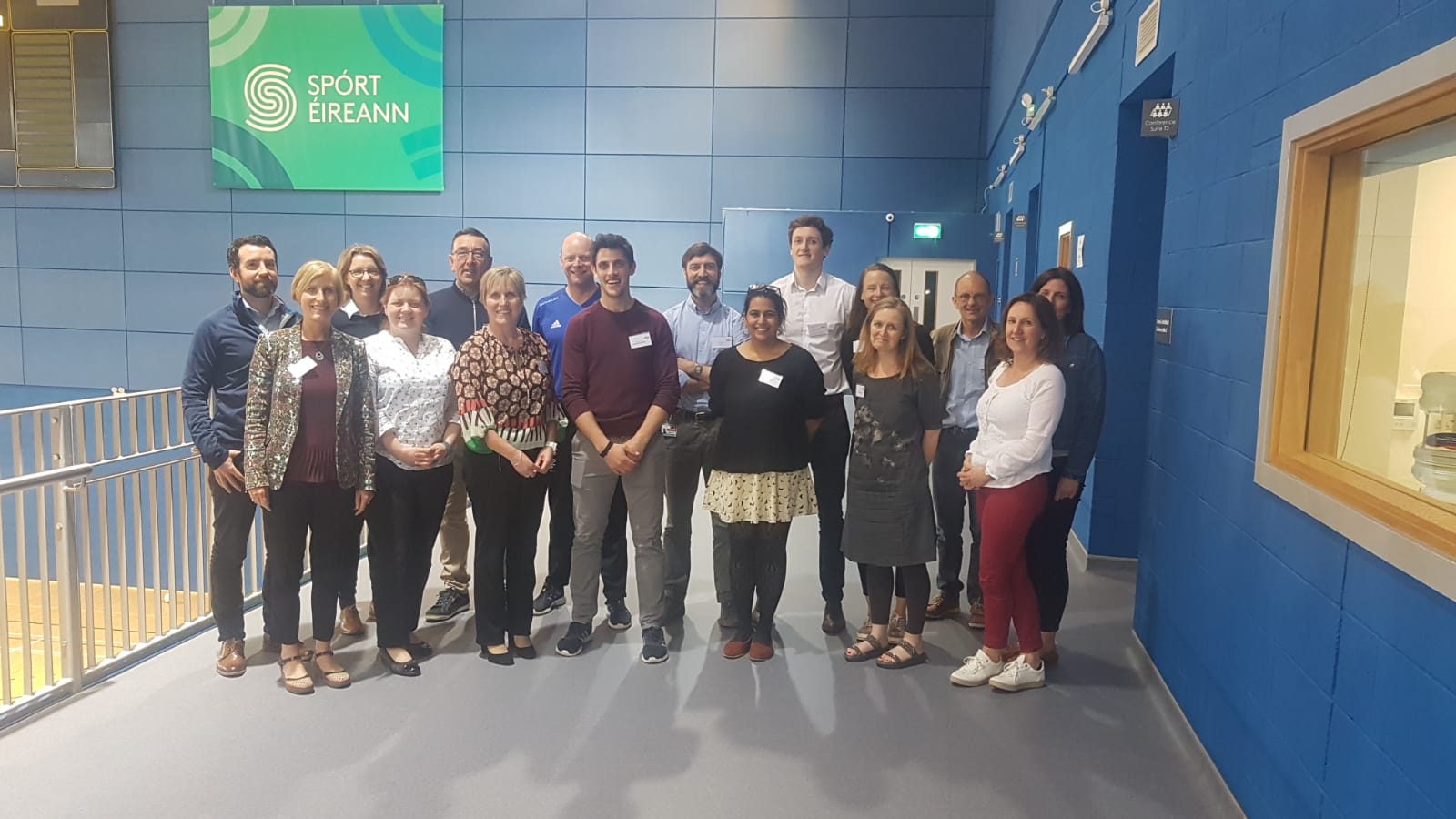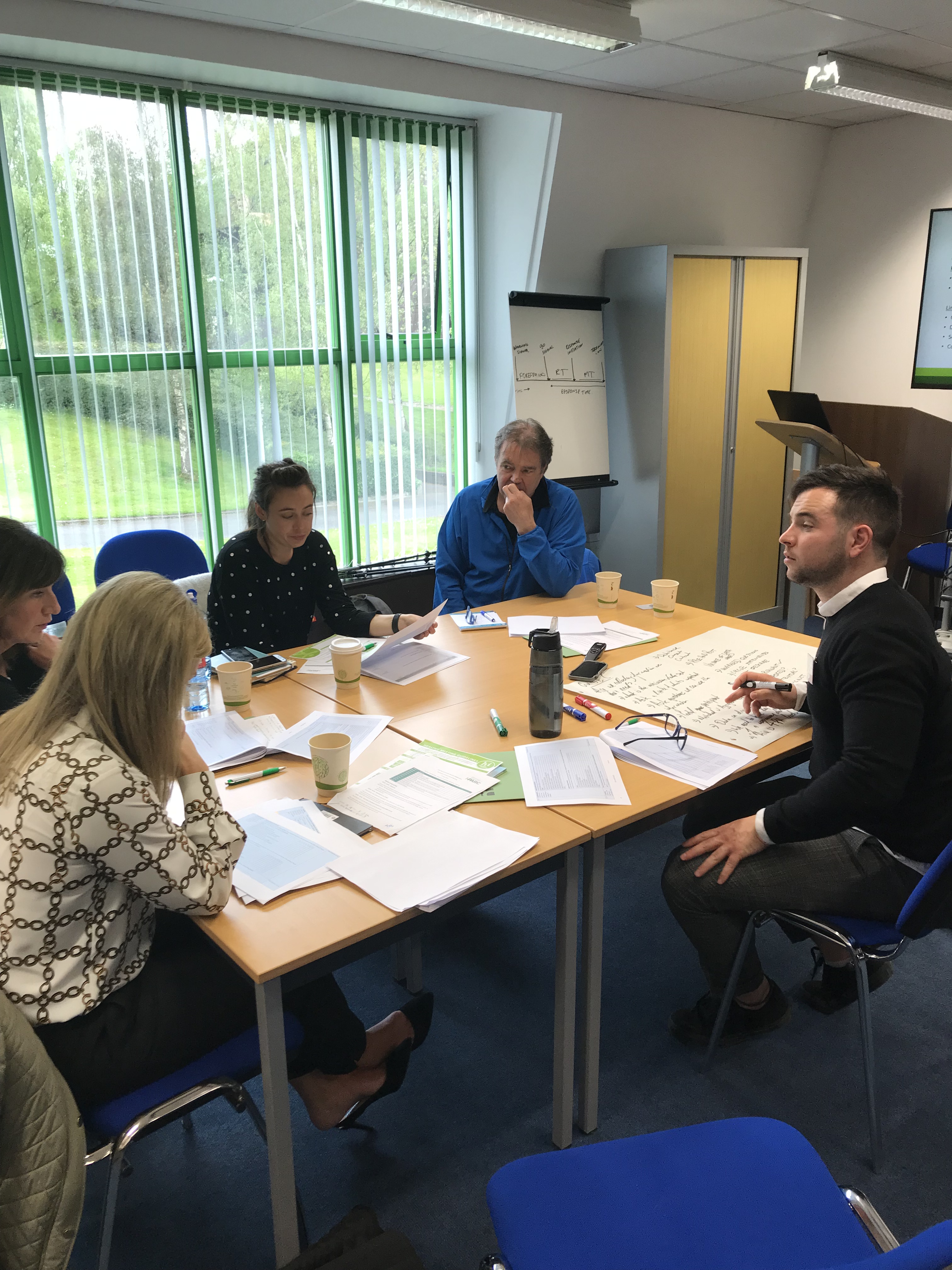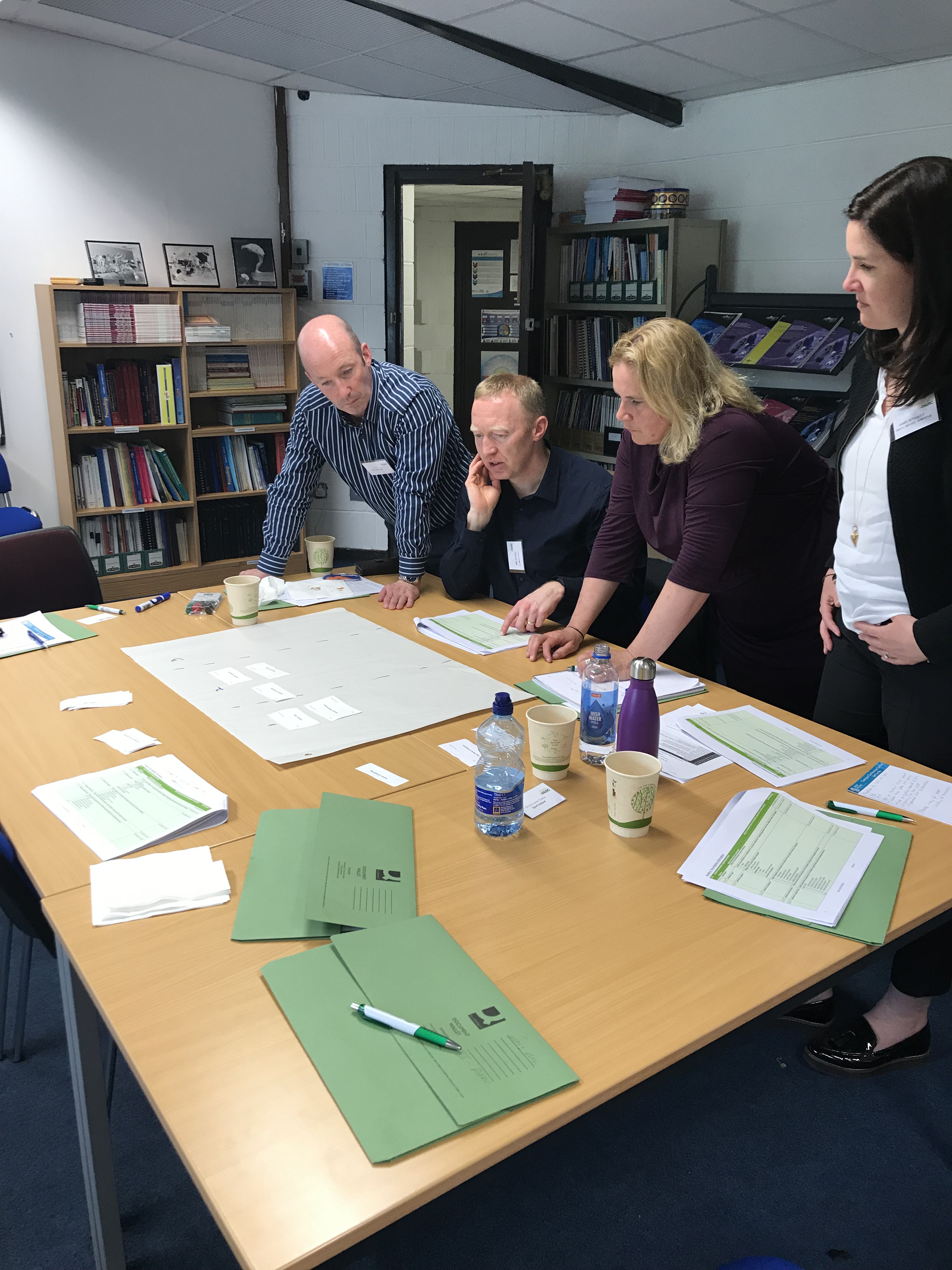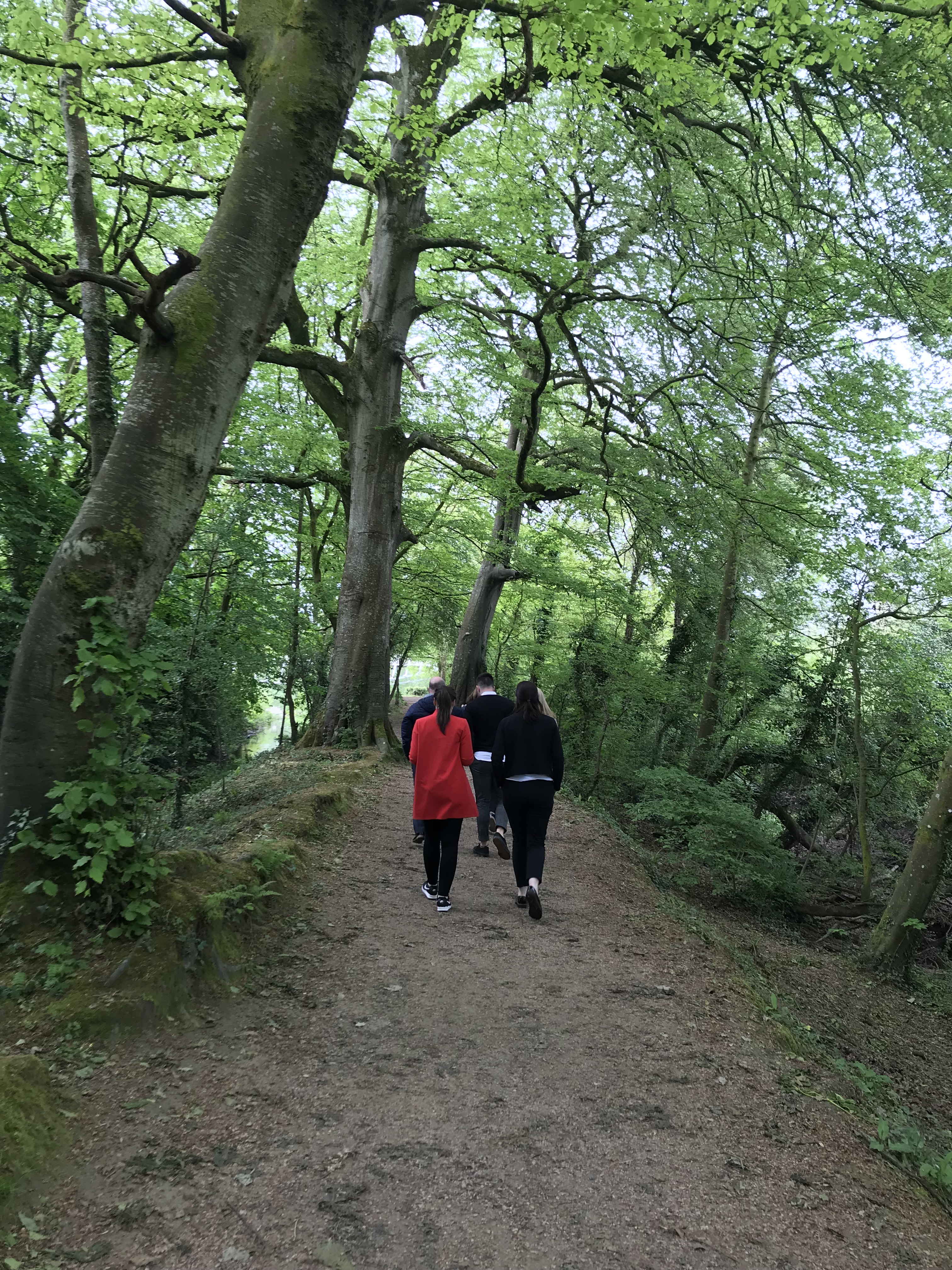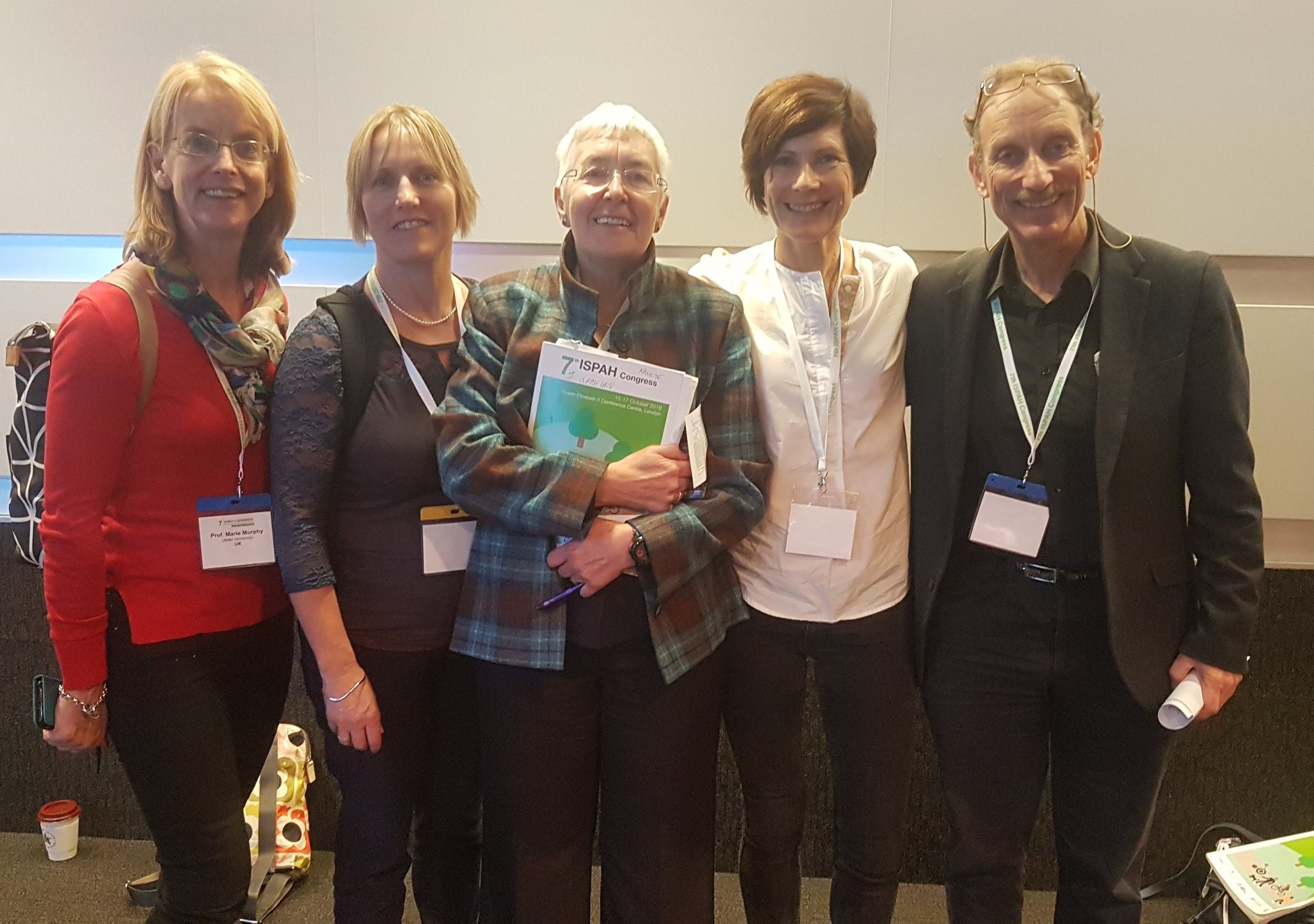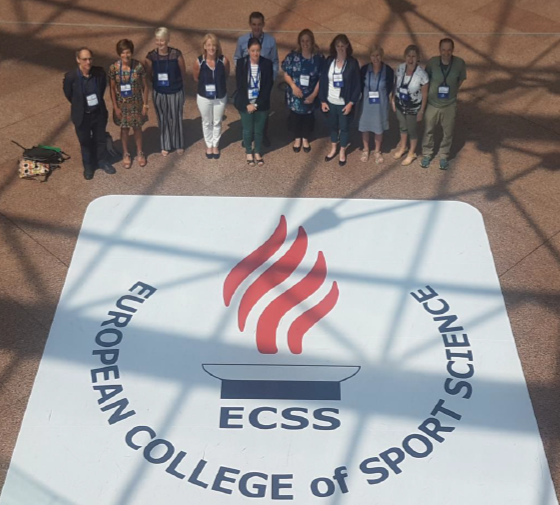‘What does I-PARC mean for me and/or my organisation?’: The Project Team testimonies
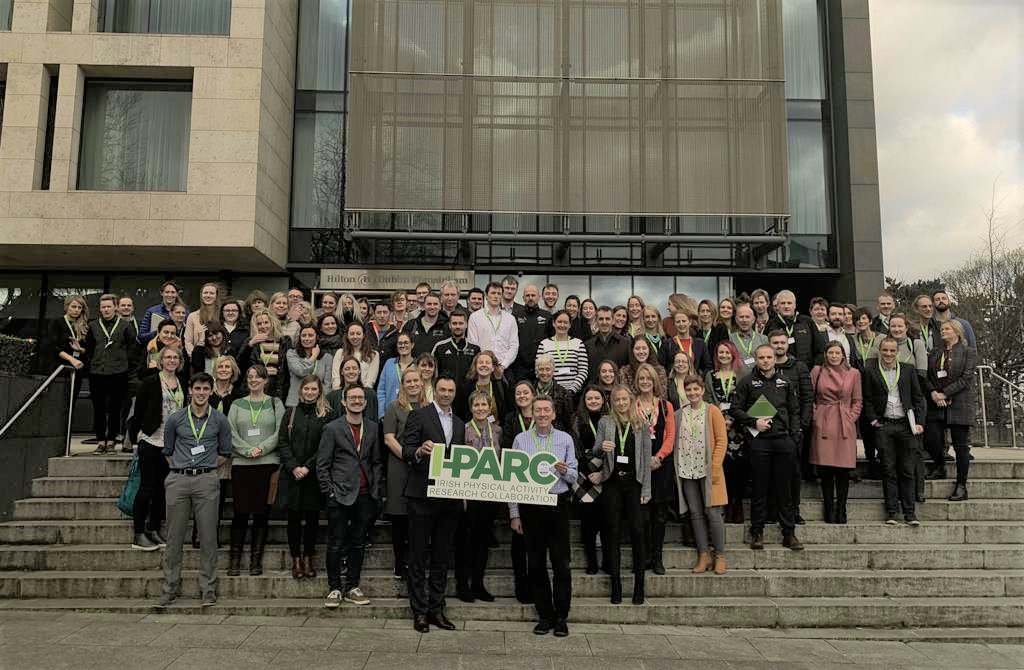
The I-PARC research project is approaching the end of its funding and we are delighted to announce that the knowledge-user partners have been successful in securing funding which will kick-in after the HRB grant expiry date (April 2021). Undisputedly, the project team envisage I-PARC as a ‘real-world laboratory’ that has ‘brought to life the intersection of Policy, Practice and Academia’ facilitating new relationships and enabling ‘work across sectors and disciplines’ to ‘co-create and test solutions’ that improve ‘physical activity policy, practice and research in Ireland’. These partnerships are essential for ‘driving change to improve physical activity’ at a ‘systems level approach’ across the island of Ireland.
The I-PARC has achieved a lot since its establishment in 2018 and we would like to take this opportunity as the project team to share some of our testimonials on ‘What I-PARC means to me and my organisation’:
From the Principal investigators:
“It was an honour to lead, with Fiona Mansergh, on this important ‘HRB Applied Partnership Award’. From my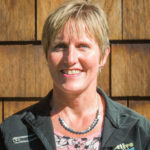 perspective, the challenge from the outset was to translate research knowledge and evidence into practical, applied information that could advance the physical activity agenda on the island of Ireland. I quickly learned that practice-based evidence was equally valuable and consequently I-PARC provided the opportunity for a true collaboration between research, policy and practice. Over the past two years we have made significant progress on identifying and addressing knowledge gaps, and on developing enabling contexts for the effective evaluation and implementation of physical activity opportunities. However, for me the real benefit has been in the partnerships established and friendships made along the way. I would like to thank everyone involved, the Research Advisory Panel, the Practitioner Advisory Group and I very much look forward to the next stage of the journey with I-PARC 2.0.”
perspective, the challenge from the outset was to translate research knowledge and evidence into practical, applied information that could advance the physical activity agenda on the island of Ireland. I quickly learned that practice-based evidence was equally valuable and consequently I-PARC provided the opportunity for a true collaboration between research, policy and practice. Over the past two years we have made significant progress on identifying and addressing knowledge gaps, and on developing enabling contexts for the effective evaluation and implementation of physical activity opportunities. However, for me the real benefit has been in the partnerships established and friendships made along the way. I would like to thank everyone involved, the Research Advisory Panel, the Practitioner Advisory Group and I very much look forward to the next stage of the journey with I-PARC 2.0.”
Prof Catherine Woods, Chair of Physical activity for Health Research Cluster, Health Research Institute, University of Limerick
“I-PARC has been invaluable in terms of progressing physical activity policy, practice and research in Ireland. I-PARC maintains strong links between academics in various fields, the HSE, Sport Ireland, policy makers in 3 Departments, the sports sector and other practitioners, the academic and health system in NI and the experts abroad. These links have informed policy, practice and implementation and are a great example of a collaborative systems approach to raising population levels of physical activity.”
maintains strong links between academics in various fields, the HSE, Sport Ireland, policy makers in 3 Departments, the sports sector and other practitioners, the academic and health system in NI and the experts abroad. These links have informed policy, practice and implementation and are a great example of a collaborative systems approach to raising population levels of physical activity.”
Dr Fiona Mansergh, Principal Investigator of I-PARC, Assistant Principal of Health and Wellbeing programme Department of Health
From the project manager(s):
“Working on I-PARC demonstrated the value of people and organisations working together to understand the promotion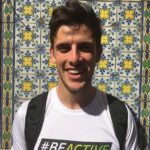 of physical activity in Ireland. It helped me understand that it is important to invest time in building relationships with other relevant sectors and when done effectively it can allow for knowledge translation and networking that benefits all. While managing I-PARC I began to understand the different perceptions of policy makers, practitioners and researchers involved in physical activity promotion. This invaluable experience and knowledge I gained will impact my teaching and research for many years to come.”
of physical activity in Ireland. It helped me understand that it is important to invest time in building relationships with other relevant sectors and when done effectively it can allow for knowledge translation and networking that benefits all. While managing I-PARC I began to understand the different perceptions of policy makers, practitioners and researchers involved in physical activity promotion. This invaluable experience and knowledge I gained will impact my teaching and research for many years to come.”
Dr Joey Murphy, Lecturer in Nutrition, Physical Activity and Public Health, University of Bristol
“I joined the I-PARC project in its later stages assisting and later taking over from Dr Joey Murphy, the former project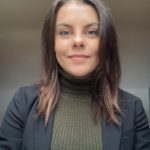 manager. As an early career researcher, I-PARC has helped me to understand and witness the development and sustainability of a successful collaboration between knowledge users and researchers. This type of collaboration is an integral asset to the progression of Physical Activity research and practice on the island of Ireland. The I-PARC project provides an exemplar approach to bridging the gap between research, policy and practice through its development of pragmatic toolkits for enabling contexts, intervention evaluation and implementation.”
manager. As an early career researcher, I-PARC has helped me to understand and witness the development and sustainability of a successful collaboration between knowledge users and researchers. This type of collaboration is an integral asset to the progression of Physical Activity research and practice on the island of Ireland. The I-PARC project provides an exemplar approach to bridging the gap between research, policy and practice through its development of pragmatic toolkits for enabling contexts, intervention evaluation and implementation.”
Ms Caera Grady, Research Assistant, Physical Activity for Health, University of Limerick
From the Academic partners:
“I-PARC is like a ‘real-world laboratory’ where practitioners from different sectors work with research ers and policymakers to co-create and test solutions to improve physical activity practice, evaluation and knowledge sharing in Ireland. What it means for my work is that it provides a space to be creative and yet be methodical, accountable and productive at the same time. We have grown as a team, and learned a lot more about each other’s practice. I-PARC is proof of the added value in working collectively rather than separately.”
ers and policymakers to co-create and test solutions to improve physical activity practice, evaluation and knowledge sharing in Ireland. What it means for my work is that it provides a space to be creative and yet be methodical, accountable and productive at the same time. We have grown as a team, and learned a lot more about each other’s practice. I-PARC is proof of the added value in working collectively rather than separately.”
Dr Niamh Murphy, Lecturer in Physical Activity and Health, School of Health Sciences, Waterford Institute of Technology
“For me I-PARC fulfils two really important functions. Firstly, it allows me, as a researcher, to connect with policy makers and practitioners, not only to share mine and other researchers’ work in order to influence policy and practice, but also to help inform, shape and guide my future research agenda. Knowing the evidence they need and the challenges they face, helps us as ask and investigate the most relevant research questions. Secondly, as a NI-based researcher with strong research collaborations with RoI colleagues, I see massive potential for an all-island approach to physical activity research, policy and practice and believe I-PARC is a potential vehicle through which to seek a more aligned, coordinated and complimentary approaches to physical activity across the island”.
influence policy and practice, but also to help inform, shape and guide my future research agenda. Knowing the evidence they need and the challenges they face, helps us as ask and investigate the most relevant research questions. Secondly, as a NI-based researcher with strong research collaborations with RoI colleagues, I see massive potential for an all-island approach to physical activity research, policy and practice and believe I-PARC is a potential vehicle through which to seek a more aligned, coordinated and complimentary approaches to physical activity across the island”.
Marie Murphy, Dean of Post-graduate Research and Director of Ulster Doctoral College, Ulster University
“For me, I-PARC has been a really good opportunity to learn, meet new people and form new collaborations. I joined 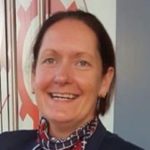 I-PARC as an academic (UCD) and health-care professional representative (a physiotherapist by profession). I have learned so much about population level physical activity. I have had the opportunity to meet new people from many sectors and have gained a real appreciation for the systems level approach to physical activity promotion. I have always had an appreciation for the importance of monitoring and evaluating PA interventions and now I-PARC has provided a much-needed standardised evaluation framework. Finally, I have established new collaborations that I hope will facilitate further research, impacting positively on the promotion of population physical activity in Ireland and internationally”.
I-PARC as an academic (UCD) and health-care professional representative (a physiotherapist by profession). I have learned so much about population level physical activity. I have had the opportunity to meet new people from many sectors and have gained a real appreciation for the systems level approach to physical activity promotion. I have always had an appreciation for the importance of monitoring and evaluating PA interventions and now I-PARC has provided a much-needed standardised evaluation framework. Finally, I have established new collaborations that I hope will facilitate further research, impacting positively on the promotion of population physical activity in Ireland and internationally”.
Dr Grainne O’Donoghue, Lecturer/ Assistant Professor Physiotherapy, School of Public Health, Physiotherapy and Sports Sciences, University College Dublin
“As I researcher, I see I-PARC as a fascinating natural experiment and as an initiative that has the potential to become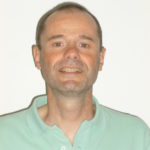 an international example of best practice in physical activity promotion using a systems-based approach advocated in the WHO Global Action Plan on Physical Activity. It represents a unique platform to work across sectors and disciplines and foster knowledge exchange among researchers, policy makers and practitioners to address the issue of inactivity in Ireland. More specifically, I-PARC is also a useful strategy to optimise implementation and pragmatic evaluation of physical activity initiatives and programmes across the Island.”
an international example of best practice in physical activity promotion using a systems-based approach advocated in the WHO Global Action Plan on Physical Activity. It represents a unique platform to work across sectors and disciplines and foster knowledge exchange among researchers, policy makers and practitioners to address the issue of inactivity in Ireland. More specifically, I-PARC is also a useful strategy to optimise implementation and pragmatic evaluation of physical activity initiatives and programmes across the Island.”
Dr Enrique Garcia Bengoechea, Research Fellow, University of Limerick
“As an early career researcher, being involved with I-PARC has already had a sizeable impact on my career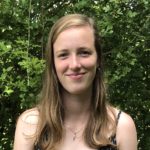 development. Having the opportunity to be involved in a collaboration with such a variety of sectors has helped build my experience and confidence when working with different types of partners who have an integral role to play in the promotion of physical activity. Working on I-PARC has also shown me the importance of knowledge translation from research to practice, so that the work of I-PARC is usable and accessible for different types of users, not just academics. The importance of making my research understandable for a wider audience is something that I really value, and have better understanding of, as a result of being a part of I-PARC.”
development. Having the opportunity to be involved in a collaboration with such a variety of sectors has helped build my experience and confidence when working with different types of partners who have an integral role to play in the promotion of physical activity. Working on I-PARC has also shown me the importance of knowledge translation from research to practice, so that the work of I-PARC is usable and accessible for different types of users, not just academics. The importance of making my research understandable for a wider audience is something that I really value, and have better understanding of, as a result of being a part of I-PARC.”
Ms Jemima Cooper, PhD student, University of Bath
From the Sport Partners:
“As the authority responsible for the development of Sport in the country, Sport Ireland’s remit includes working closely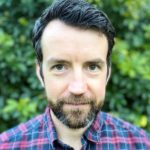 with Policy makers, Practitioners and Academics in order to develop Sport to its full potential. I-PARC has brought to life the intersection of Policy, Practice and Academia by putting in place formal structures to foster productive multi-sectoral collaboration. As a result, Sport Ireland has strengthened its existing relationships and indeed, built new ones across Health, Transport, Education and the academic sector, which will be pivotal in bringing the vision of the National Sports Policy to life. Further, I-PARC has given us the opportunity to contribute to three pragmatic toolkits in the form of the Systems Approach Toolkit, Evaluation Toolkit and Implementation Toolkit which we believe will equip all
with Policy makers, Practitioners and Academics in order to develop Sport to its full potential. I-PARC has brought to life the intersection of Policy, Practice and Academia by putting in place formal structures to foster productive multi-sectoral collaboration. As a result, Sport Ireland has strengthened its existing relationships and indeed, built new ones across Health, Transport, Education and the academic sector, which will be pivotal in bringing the vision of the National Sports Policy to life. Further, I-PARC has given us the opportunity to contribute to three pragmatic toolkits in the form of the Systems Approach Toolkit, Evaluation Toolkit and Implementation Toolkit which we believe will equip all organisations involved in the promotion of Sport and Physical Activity with the resources and tools they need to deliver on the agenda of getting more people, more active, more often.”
organisations involved in the promotion of Sport and Physical Activity with the resources and tools they need to deliver on the agenda of getting more people, more active, more often.”
Benny Cullen, Research Director & Veda Muppavarapu, Evaluation Officer, Sport Ireland
From the Education Partners:
“The I-PARC project is very important to the Physical Education Inspectorate of the Department of Education as it allows us to engage in systems-based thinking to work with partners to maximise physical activity among young people in Ireland. The partnerships between different government departments, academic institutions and research are key to driving change to improve physical activity levels in our schools.”
Niamh Barry, Physical Education Inspectorate, Department of Education and Skills
From the Health Partners:
“Representing physical activity practitioners on the I-PARC project team has enabled us to share good practice from around the country on effective physical activity interventions, providing a forum  for those working in a variety of settings to collaborate and learn from each other has provided a platform to share the breadth of case studies of physical activity that is currently being implemented. Assisting in the co-ordination of I-PARC events has certainly grown my network and provided invaluable opportunities for working with those in research and policy. I hope we grow the role of physical activity practitioners and enable opportunities for joint working and inter-sectoral collaboration to strengthen the role of those working in the planning and implementation of physical activity”.
for those working in a variety of settings to collaborate and learn from each other has provided a platform to share the breadth of case studies of physical activity that is currently being implemented. Assisting in the co-ordination of I-PARC events has certainly grown my network and provided invaluable opportunities for working with those in research and policy. I hope we grow the role of physical activity practitioners and enable opportunities for joint working and inter-sectoral collaboration to strengthen the role of those working in the planning and implementation of physical activity”.
Shirley O’ Shea, Senior Health Promotion Officer, Health Service Executive.
